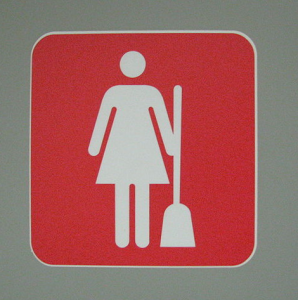good intentions don’t make sexism ok
The latest Snickers ad has sparked widespread public debate. Although it seems feminists widely agree that the underlying message of the ad is sexist, many have turned focus toward intentions. Did Snickers intend to empower women? Or did they intend to feed into the degradation of women? Or was it simply a clumsy attempt to do what big business does: pull in the dollars?
If you haven’t seen it yet, the ad features construction workers making so called ‘empowering’ comments to women passing by. I hope you’re cringing when you realise that the tagline is ‘you’re not you when you’re hungry.’ Snickers plays on the stereotypical construction worker: ‘blokes’ who lack respect for women. The ad implies that it is not normal for male builders to show respect for women. It reinforces damaging gender norms whereby men are constructed as brutish animals incapable of respecting women, while women simply have to accept their fates and put up with the bullshit. Perhaps we should even consider ourselves lucky when men do the right thing (vomit!)
Of course, Snickers isn’t the only one using the degradation of certain groups of people to sell their products. In the last few months we’ve had ‘Retarde’ and ‘AUSTRALIA EST. 1788’ stamped across fashion T-shirts, and French comedian Remi Gaillard having ‘air sex’ with unsuspecting women. Some people are unsure what the harm is, so I will spell it out here.
‘Retard’ is a deeply derogatory term for people with disabilities. It is also a popular term used by us young folk to describe someone or something a bit off or stupid (young person to young person, please stop using that word). So slapping on an uber cool ‘e’ on the end is a totally clever and innocent marketing strategy, right? So wrong.
This year Aldi released an Australia Day T-shirt sporting ‘AUSTRALIA EST. 1788.’ It has a profoundly oppressive message attached to it, perpetuating the ‘Terra Nullius’ myth. Many disregarded the T-shirt as a bit tasteless at worst. However, CEO of KARI Aboriginal Resources, Karl Ralph explained ‘[t]he message gives an indication that prior to that date there was no Australians here but we know that’s not the case. We know that Australians have been here for 50 thousand years and that’s the Indigenous people of Australia… We don’t want to reinforce the stereotyping that that was not the case.’
And the French guy ‘air-raping’ women? Well this feeds into a culture of violence by reinforcing the idea of women as passive recipients of sex and men as sexual predators. Not to mention that it makes fun of sexual assault and harassment. His defence? It’s just a joke of course! Pretending to have sex with non-consenting women (aka pretending to rape them), or anyone at that, isn’t funny and it’s not OK to encourage people to laugh. I’m not sure how this could get any more obvious.
Clearly, these marketing schemes have harmful impacts. They impact everyone but they are more harmful to some than others, particularly the group/s who are degraded in the process. And right about now is when the debate about intention chimes in, as though this makes a difference to how harmful or socially acceptable these acts ought to be considered. It actually doesn’t matter. It doesn’t matter if there was intent to offend or if there was intent to show utmost respect. It doesn’t matter one bit.
Let’s take a look at some of most inhumane and appalling acts throughout history. Forced sterilisation of women and girls with disabilities springs to mind. In the last decade there have been a number of girls put through the ‘Ashley Treatment’, which involves surgical sterilisation via hysterectomy, removal of breast buds, and the use of hormones to stop her body’s natural development. According to carers who pursue the procedure, their intentions are all good. ‘Best interests’ is what they call it. Some ‘reasons’ include to keep the girl small so that carers can carry her as an adult, to prevent pregnancy and to relieve her of that dreaded situation known as menstruation (gosh, I don’t know how us women cope month to month with that abomination!)
The systematic removal of Aboriginal and Torres Strait Islander children from their families and communities, known as the Stolen Generations, was also supposedly done with ‘good intentions’. ‘Good intentions’ that inflicted mass horror and pain. ‘Good intentions’ shaped by the prominent racist attitudes and policies of the time.
So, if the intentions behind these acts were good then it’s not so bad? When it’s put like this it just doesn’t make sense. Yet, time and time again the focus lands on intentions and not on impacts. I am not trying to compare a Snickers ad to the atrocities mentioned here. My point is that while Snickers might not be an evil and deliberately sexist company, this does not change the impact of their sexist ad campaign. By being preoccupied with intentions we minimise the harm caused and confuse ourselves about what is acceptable and unacceptable. We need to consider impacts not intentions, even if it makes us feel bad about our society and about what we might be participating in unwittingly. At least then we can see the error and try to make it right. Because, misplaced ‘good intentions’ cause just as much harm as bad intentions.



Pingback: Sunday feminist roundup (13th April 2014)
Pingback: Shut up: ABC Ramp Up for Disability Issues Axed | lip magazine